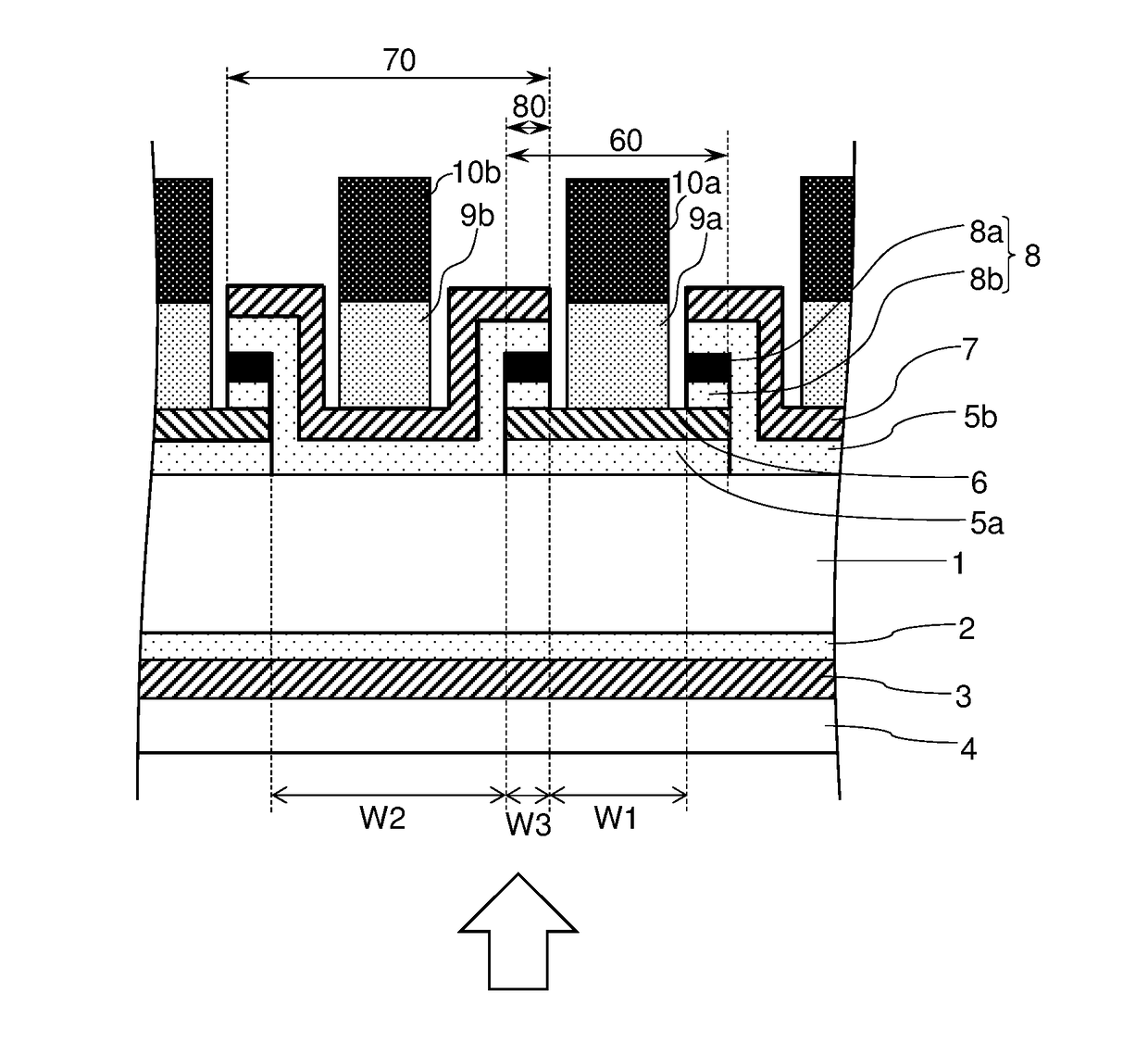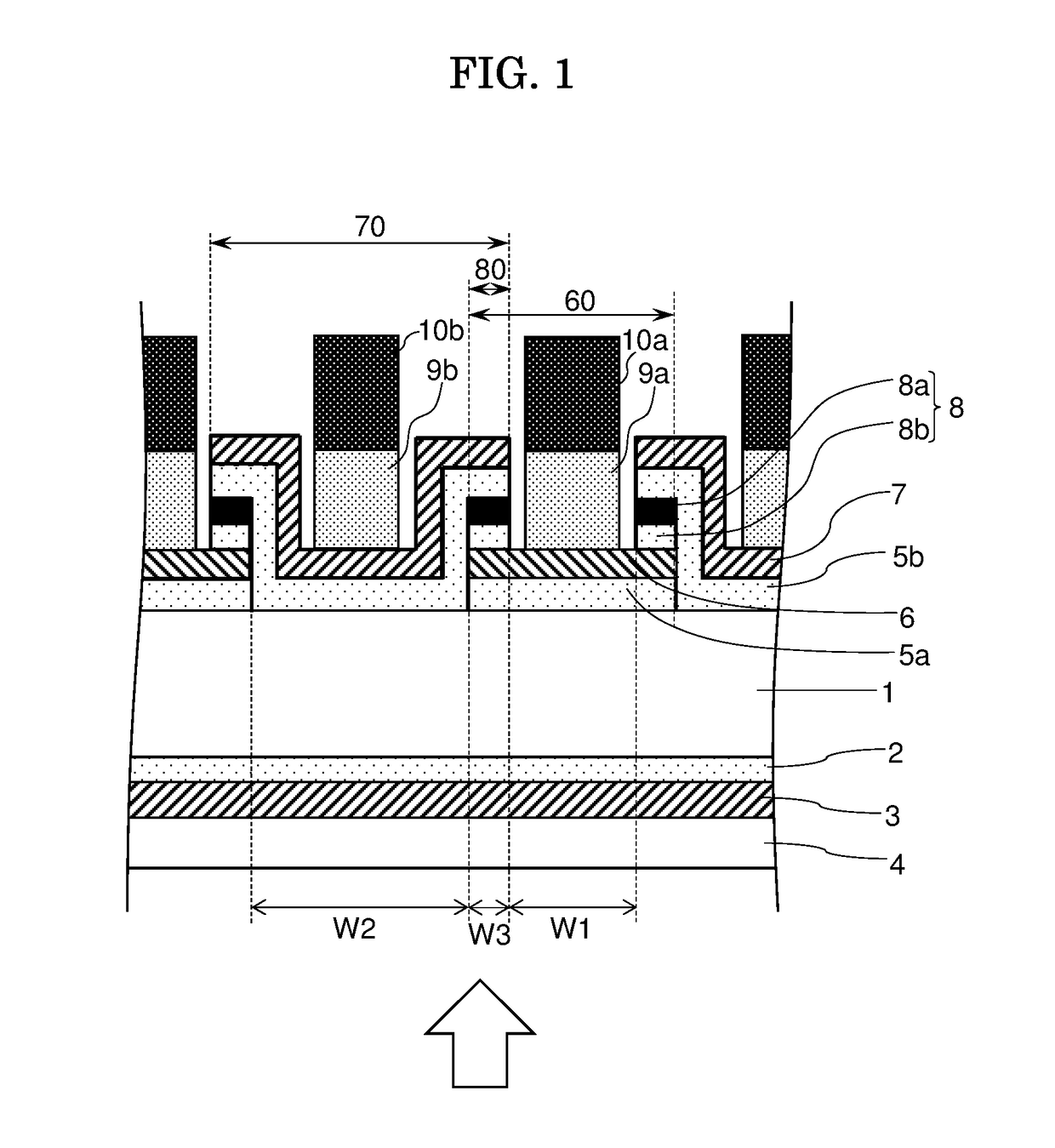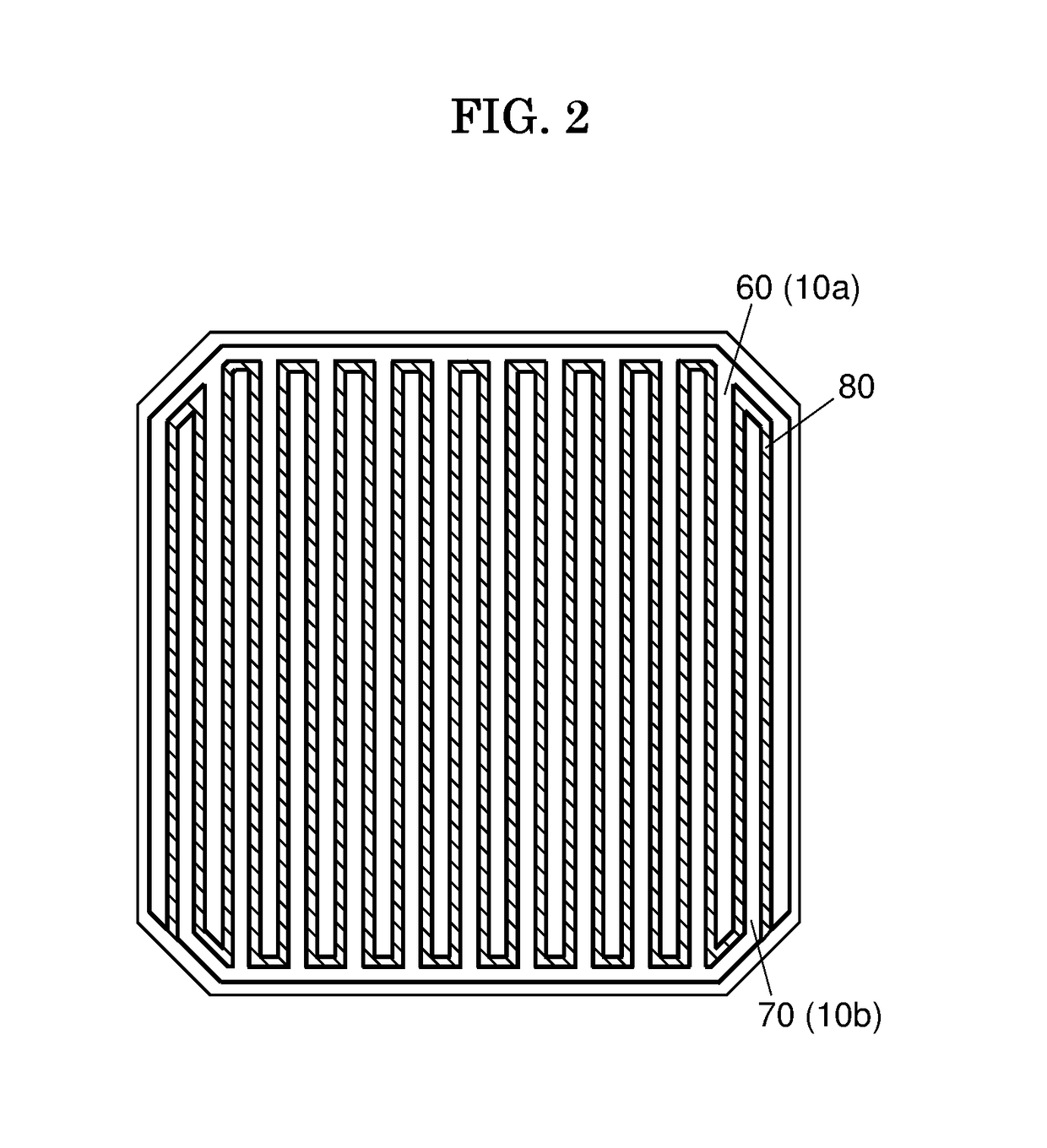Solar cell and method for manufacturing same
- Summary
- Abstract
- Description
- Claims
- Application Information
AI Technical Summary
Benefits of technology
Problems solved by technology
Method used
Image
Examples
examples
[0084]Hereinafter, the present invention will be described more in detail based on comparison between an example in which a crystalline silicon solar cell shown in FIG. 1 is prepared through steps shown in FIG. 3 and a comparative example in which a crystalline silicon-based solar cell is prepared through steps shown in FIG. 4. The present invention is not limited to the example described below.
example
[0085]A 200 μm-thick n-type single-crystalline silicon substrate having a (100) plane orientation on the incidence surface was immersed in a 2 wt % hydrofluoric acid aqueous solution for 3 minutes to remove a silicon oxide film on a surface of the substrate, and then rinsed with ultrapure water twice. The substrate was immersed for 15 minutes in a 5 / 15 wt % KOH / isopropyl alcohol aqueous solution held at 70° C., thereby obtaining a single-crystalline silicon substrate having pyramidal texture with (111) plane exposed on a surface thereof.
[0086]The texture-formed substrate was introduced into a CVD apparatus, and an i-type amorphous silicon layer was formed to have a thickness of 10 nm as an intrinsic silicon-based thin-film 2 on the light-receiving surface (second principal surface) side. Thereafter, an i-type amorphous silicon layer was formed to have a thickness of 8 nm as an intrinsic silicon-based thin-film 5a on the back surface (first principal surface) side. Deposition conditi...
PUM
 Login to View More
Login to View More Abstract
Description
Claims
Application Information
 Login to View More
Login to View More - R&D
- Intellectual Property
- Life Sciences
- Materials
- Tech Scout
- Unparalleled Data Quality
- Higher Quality Content
- 60% Fewer Hallucinations
Browse by: Latest US Patents, China's latest patents, Technical Efficacy Thesaurus, Application Domain, Technology Topic, Popular Technical Reports.
© 2025 PatSnap. All rights reserved.Legal|Privacy policy|Modern Slavery Act Transparency Statement|Sitemap|About US| Contact US: help@patsnap.com



